Injection Mold Manufacturer
Choosing the right injection mold manufacturer can be challenging. This guide covers how to evaluate reliability, cost, and performance factors. Learn about production capabilities, customer reviews, and ensuring value. By the end, you’ll know how to take injection mold manufacturer.
Key Takeaways
- Injection mold manufacturers play a critical role in producing customized molds essential for various industries, with specialization in low-volume or high-volume production impacting capabilities.
- Key characteristics of reliable manufacturers include industry certifications, quality control measures, and a clean production environment, alongside positive customer feedback.
- Emerging trends in the injection molding industry, such as automation, sustainable practices, and a shift towards customizable solutions, are reshaping market demands and manufacturing processes.
- Implementing effective strategies, such as SEO and lead generation, can significantly increase revenue for injection mold manufacturers by attracting more clients and expanding market reach.
Understanding Injection Mold Manufacturers
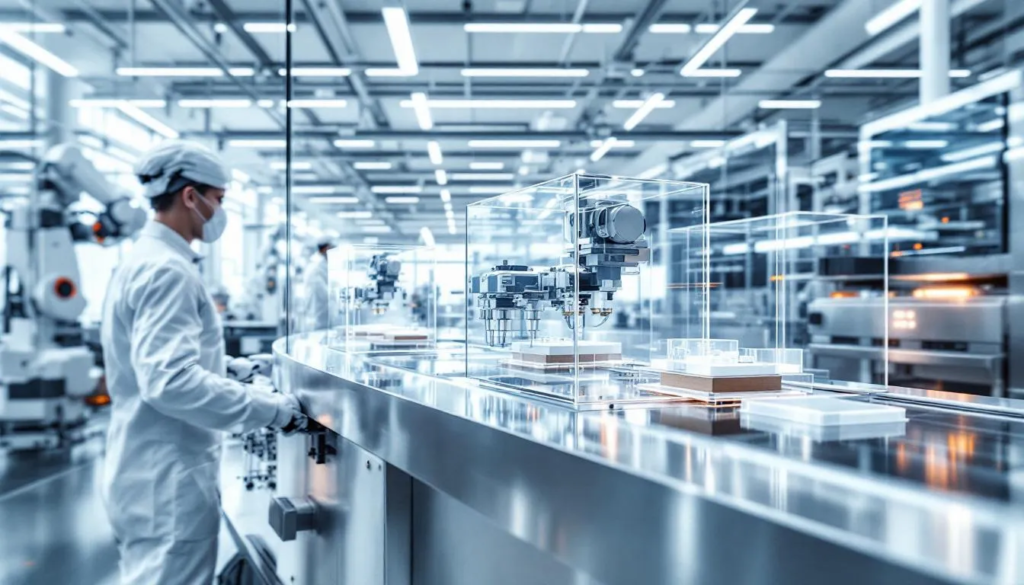
Injection mold manufacturers are the unsung heroes of the plastic injection molding industry. They transform design concepts into tangible products, providing the molds necessary for producing various plastic components. As the demand for injection-molded products increases across sectors like medical devices, consumer goods, and telecommunications, the role of these manufacturers becomes even more critical. Specialized and customized injection molds are particularly in demand, presenting significant growth opportunities for manufacturers who can adapt to these market needs.
As of March 2025, present trends show a surge in search interest and industry analysis focused on innovative materials and automation in injection molding, reflecting the evolving needs of the market.
These manufacturers are not a monolith; they vary widely in their capabilities and specializations, highlighting the difference in their approaches. Some focus on high-speed production techniques, while others excel in creating complex, high-precision molds. Understanding the diversity within this industry is essential for selecting the right partner for your project.
Paying close attention to market signals and industry developments is crucial for manufacturers aiming to stay competitive and achieve sustained growth.
Types of Injection Mold Manufacturers
Injection mold manufacturers can be categorized based on their production capabilities and the industries they serve:
- Some manufacturers specialize in low-volume, custom molding, catering to clients with unique and specific needs.
- Others excel in high-volume production, using high-speed techniques to produce large quantities of molds quickly and efficiently.
- This specialization can extend to various sectors, including automotive, medical, packaging, and consumer products, including injection molding services.
Market focus also plays a significant role. Some manufacturers target specific industries or geographical regions to better meet their customers’ needs. This strategic focus allows them to develop expertise and offer tailored solutions that align with market demands. Effective order control and management are essential for manufacturers to ensure timely completion of projects and maintain high quality standards throughout the mold production process. Understanding these distinctions is crucial when selecting a manufacturer that can meet your specific project requirements.
Key Characteristics of a Reliable Manufacturer
A reliable injection mold manufacturer exhibits several key characteristics:
- Having industry certifications, such as something called ISO certification, which reflects a commitment to quality and adherence to global production standards.
- Maintaining a clean and controlled manufacturing environment to prevent contamination that could compromise product quality.
- Implementing strict quality control measures to enhance durability and longevity of the molds by addressing wear and stress-related issues.
Customer feedback is another vital indicator of reliability. It provides insights into:
- A manufacturer’s service quality
- Overall performance
- Past performance and satisfaction References from previous clients can further assess:
- How well a manufacturer meets delivery timelines
- How well a manufacturer meets project requirements.
Ensuring that the manufacture maintains consistent high-quality equipment, regularly calibrated and well-maintained, is essential to provide optimal production.
The Manufacturing Process of Injection Molds
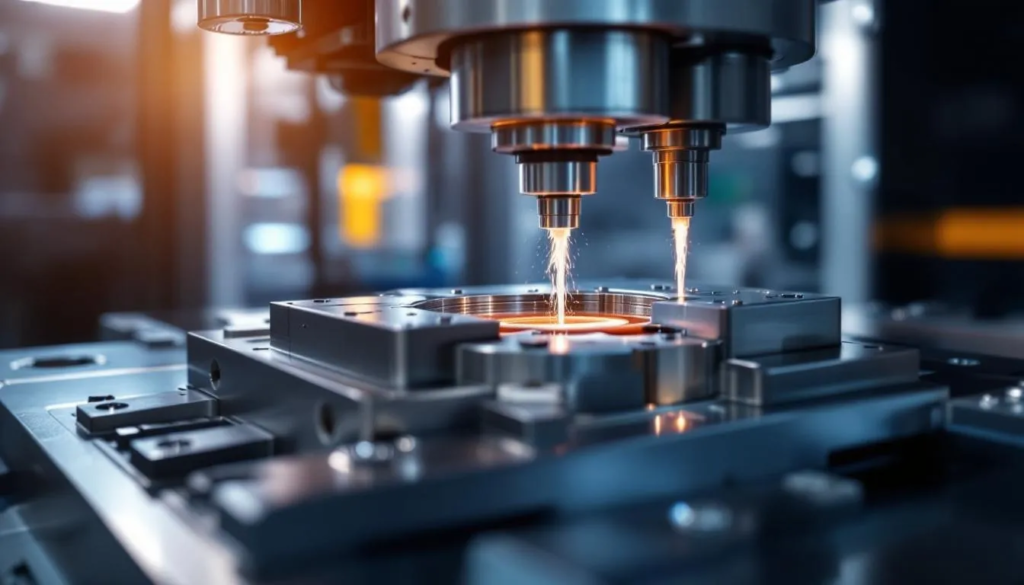
The manufacturing process of injection molds is a complex series of operations designed to produce molds for injection molding. This process involves several critical stages, each contributing to the overall efficiency and quality of mold production. Understanding these stages is essential for appreciating the intricacies involved in creating high-quality molds.
A comparison between traditional manufacturing methods and modern, automated processes shows that automation often leads to greater efficiency and improved quality, making it a preferred choice in many industries.
Injection molding itself involves a sequence of steps: clamping, injection, dwelling, cooling, mold opening, and ejection. The design and construction of molds significantly impact the overall efficiency and quality of the production. Key stages include design and prototyping, CNC machining and processing technology, and finishing and quality control.
Design and Prototyping
Effective design and prototyping are critical for ensuring that molds meet specifications and perform reliably during production. Manufacturers often specialize in custom mold designs, catering to specific client needs and industries.
For example, creating a prototype for a mold with intricate undercuts or complex surface geometries can reveal challenges in achieving high-precision results, allowing engineers to refine the design before moving to full-scale production.
This stage involves translate design concepts into prototypes that can be tested and refined before full-scale production to begin at the beginning. The goal is to ensure that the final product meets the desired standards of quality and performance.
CNC Machining and Processing Technology
CNC machining is essential in mold manufacturing, providing high precision and the ability to produce complex shapes and cavity designs. Utilizing advanced processing technologies, such as laser sintering and high-speed cutting, can significantly enhance the precision of mold dimensions.
Achieving high processing accuracy is critical for ensuring the quality and qualification rate of molded products, as it allows for tight control of tolerances, especially in high-precision mold manufacturing.
These technologies improve the overall efficiency and output quality of mold production, enabling rapid adjustments and increased production speed.
Finishing and Quality Control
Finishing processes in mold manufacturing are vital for achieving the desired surface finish and tolerances required for mold performance. Quality control measures include rigorous inspections and testing to ensure that molds meet specified tolerances and operational requirements. This includes verifying the size and geometric parameters of each component to ensure they meet precise design specifications.
Proper certifications are essential to:
- Meet industry-specific quality standards and regulations. Effective management of tolerance ranges ensures that:
- Molded parts consistently meet design specifications.
- Molded parts function correctly.
Factors Influencing the Cost of Injection Molds
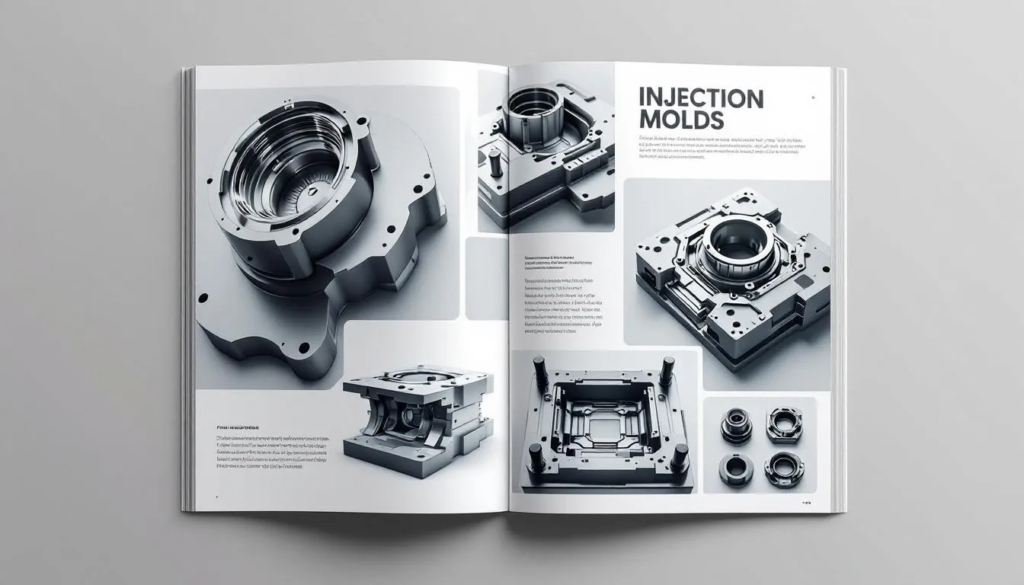
Several factors influence the cost of injection molds, making it essential to evaluate the total value over initial cost savings. Material selection, complexity of design, and production volume are key considerations that can significantly impact overall costs.
Designing for low cost involves selecting appropriate materials and utilizing efficient processing techniques to reduce expenses while maintaining quality and durability.
Choosing the right materials is crucial for both cost and longevity. High-performance materials can drive up costs, but they often offer better durability and performance.
The complexity of the mold design can also increase manufacturing time and costs due to the need for advanced features and precise tolerances. Higher production volumes can lead to lower per-unit costs due to economies of scale.
Material Selection
The choice of material for molds can significantly affect their cost and longevity. Different plastics offer unique strengths, impacting the shape, performance, and durability of the molds. There is a growing trend towards utilizing advanced and recyclable materials, aligning production with sustainability goals.
Incorporating recycled materials into injection molding processes is becoming a standard practice to mitigate environmental impacts. Recent research efforts are focused on developing advanced and sustainable materials for injection mold manufacturing.
Complexity of Design
Highly intricate designs increase mold manufacturing time, directly impacting production costs. Complex designs often require advanced manufacturing techniques, which can make the process more difficult, increasing both time and cost.
Prototyping tools are crucial for validating designs and can significantly reduce mold costs during the development phase.
Production Volume
Higher production volumes can lead to lower per-unit costs due to economies of scale in mold manufacturing. Injection molding achieves greater cost efficiency in high-volume production, as the fixed costs are distributed over a larger number of units.
This cost efficiency justifies the use of more durable and costly molds, reducing the per-unit production cost.
Enhancing Manufacturing Accuracy and Consistency
Enhancing manufacturing accuracy and consistency is crucial for producing high-quality injection molds. The integration of robotics and AI can significantly improve precision and minimize errors in production processes. Advanced automation, including real-time monitoring and smart manufacturing systems, enhances operational efficiency by automating tasks such as raw material loading and quality control.
Precision machining equipment, such as CNC milling machines and machining centers, plays a vital role in achieving the required accuracy for plastic mold manufacturing and machining accuracy. Managing tolerance ranges is essential to ensure that the outputs meet quality standards, contributing to the overall reliability of the molded workpiece products.
Advanced Processing Methods
Implementing advanced processing methods can significantly enhance precision and reduce errors in injection mold manufacturing. Continuous feedback loops in the manufacturing process help identify areas for improvement and continue to maintain high quality standards.
Real-time monitoring system is also adopted to enhance production quality by providing immediate insights and corrective actions.
Tolerance Range Management
Managing tolerance ranges is essential to ensure that the outputs of the injection molding process meet quality standards. High-precision injection molding can achieve dimensional tolerances as tight as 0.001mm, vastly surpassing standard molding techniques. These high precision levels contribute to the overall quality and reliability of the molded products.
Continuous Improvement Practices
Continuous improvement practices in manufacturing focus on incremental enhancements that lead to sustainable high-quality standards. Monitoring and evaluation are crucial for assessing the effectiveness of manufacturing processes and identifying areas for improvement.
Regular employee training and engagement initiatives foster a culture of continuous improvement, empowering staff to contribute innovative ideas.
Trends Shaping the Future of Injection Mold Manufacturing
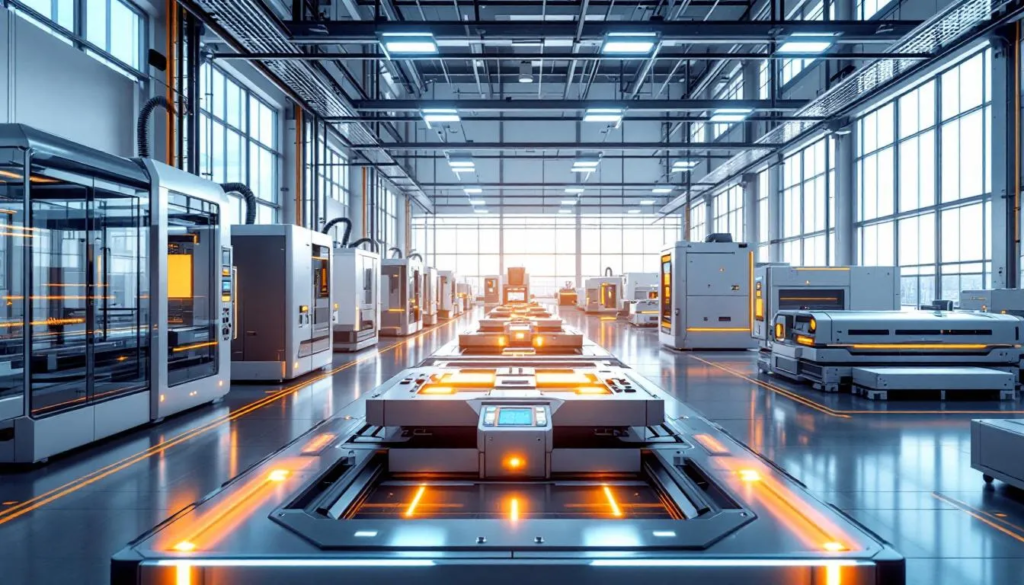
The injection molding industry is undergoing rapid changes driven by technological advancements and evolving market demands. The integration of advanced technologies is enhancing efficiency and production capabilities, making the industry more adaptable to changing needs. In 2023, nearly 60% of new injection molding machines sold in Europe were equipped with advanced process monitoring systems, showcasing the rapid adoption of technology.
Monitoring Google search trends and volume data helps manufacturers understand current market interest and optimize their visibility to align with evolving customer demands.
These trends are not just about technology; they also reflect a shift towards more sustainable and flexible manufacturing solutions. Companies are increasingly adopting eco-friendly practices to minimize waste and energy consumption, contributing to a greener economy. Market demand is also shifting towards custom and flexible manufacturing solutions to meet specific customer needs and preferences.
Automation and Smart Manufacturing
Automation is transforming injection mold manufacturing by:
- Enhancing efficiency and precision in production processes
- Using robotic systems and automated machinery to allow for faster cycle times
- Reducing human error in mold production
Smart manufacturing technologies, including AI and IoT, result in improved data analysis, leading to better decision-making and operational efficiency. The future of injection mold manufacturing is leaning towards greater integration of these technologies to facilitate continuous advancements.
Sustainable Manufacturing Practices
Adopting eco-friendly practices in injection molding helps in minimizing waste and energy consumption, thus reducing the environmental footprint. Sustainable manufacturing practices are gaining traction as companies aim to reduce their environmental impact while potentially lowering costs through improved efficiency.
Market Demand and Growth Opportunities
Market trends indicate a shift towards custom and flexible manufacturing solutions to meet specific customer needs and preferences. This shift presents significant growth opportunities for manufacturers who can adapt to these demands and offer tailored solutions.
Choosing the Right Injection Mold Manufacturer for Your Project
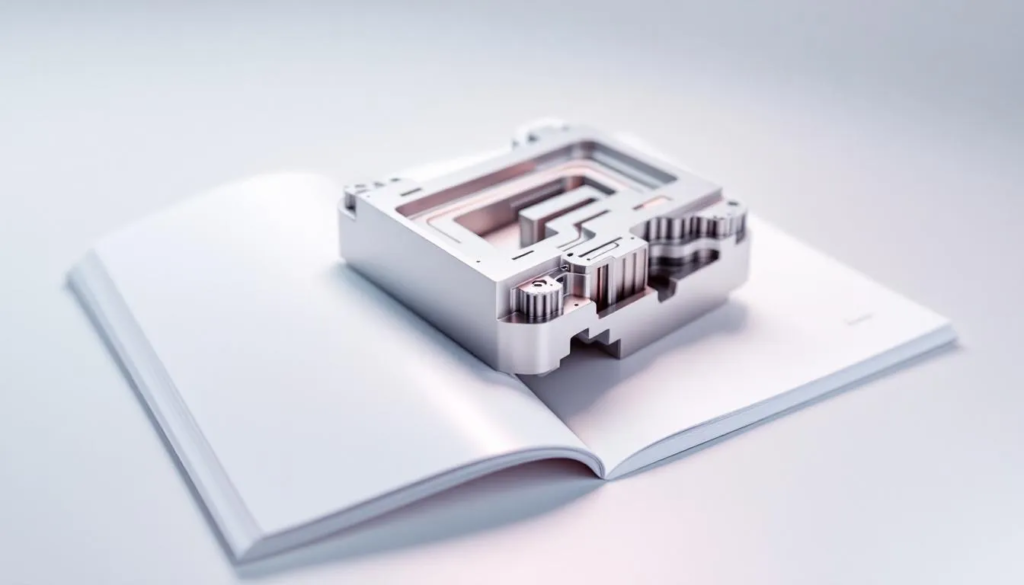
Choosing the right injection mold manufacturer is crucial for the success of your project. It involves evaluating the capabilities and experience of potential manufacturers, assessing customer reviews and references, and balancing cost with value.
To maximize your project’s success, it’s also important to reach out to previous customers and potential contacts. This helps update them on new offerings and maintain brand awareness, ensuring your business stays top-of-mind.
A thorough assessment ensures that the manufacturer can meet your specific project requirements and deliver high-quality molds.
Evaluating Capabilities and Experience
Experience in dealing with similar applications and technologies is essential for selecting a capable injection mold manufacturer. A versatile manufacturer with experience across various markets reduces the risk associated with dependence on a single industry.
Effective sales efforts, including the use of outside sales representatives, play a key role in acquiring new customers and driving business growth for manufacturers.
When evaluating a company manufacturer, it’s crucial to assess their ideal fit for your specific project needs and ensure they can meet production specifications without significant compromises, as they are a reliable source.
Customer Reviews and References
Customer feedback plays a crucial role in assessing the reliability of injection mold manufacturers, providing insights into their operational quality and service satisfaction. References from previous clients can reveal a manufacturer’s ability to meet deadlines and maintain quality standards. Positive reviews indicate a commitment to customer service and effectiveness in resolving issues.
Examining online platforms for customer testimonials helps gauge the experiences of others with specific manufacturers.
Cost vs. Value Considerations
Balancing cost with the quality of service and product reliability leads to a more advantageous investment in manufacturing. It’s essential to weigh the cost of services against the value provided, as cheaper options may compromise quality and longevity of the molds.
Evaluating the overall value offered by a manufacturer, including quality and service, is crucial for making an informed decision.
Summary
The journey through the world of injection mold manufacturing reveals the complexity and precision required at every stage. From understanding the role and types of manufacturers to exploring the intricacies of the manufacturing process and cost factors, each aspect is vital for producing high-quality molds. Enhancing accuracy and consistency through advanced technologies and continuous improvement practices, along with adapting to future trends like automation and sustainability, ensures that manufacturers remain competitive and efficient. Choosing the right manufacturer involves careful evaluation of capabilities, customer feedback, and balancing cost with value. Armed with this knowledge, you are well-equipped to navigate the world of injection molding and make informed decisions for your projects.
Frequently Asked Questions
What are the key characteristics of a reliable injection mold manufacturer?
A reliable injection mold manufacturer should possess industry certifications, adhere to strict quality control standards, maintain a clean environment, and have positive customer feedback. These characteristics ensure a commitment to excellence and reliability in their manufacturing process.
How does the choice of material affect the cost of injection molds?
The choice of material significantly impacts injection mold costs, as high-performance materials enhance durability and performance but come at a higher price. Opting for the right material can lead to better long-term value despite initial higher costs.
Why is CNC machining important in mold manufacturing?
CNC machining is crucial in mold manufacturing because it enables high precision and the creation of complex shapes, which greatly improves the quality and efficiency of the production process.
What trends are shaping the future of injection mold manufacturing?
Advanced technologies, automation, smart manufacturing, and sustainable practices are key trends shaping the future of injection mold manufacturing, driving efficiency and minimizing environmental impact. Embracing these trends will be essential for staying competitive in the industry.